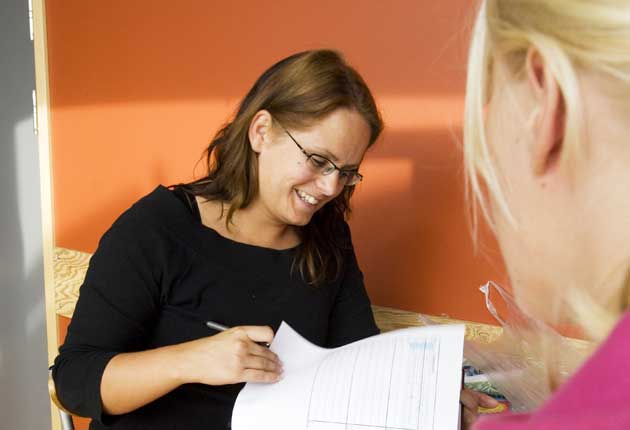Wealth Check: 'I want to buy my own home within five years'

Your support helps us to tell the story
From reproductive rights to climate change to Big Tech, The Independent is on the ground when the story is developing. Whether it's investigating the financials of Elon Musk's pro-Trump PAC or producing our latest documentary, 'The A Word', which shines a light on the American women fighting for reproductive rights, we know how important it is to parse out the facts from the messaging.
At such a critical moment in US history, we need reporters on the ground. Your donation allows us to keep sending journalists to speak to both sides of the story.
The Independent is trusted by Americans across the entire political spectrum. And unlike many other quality news outlets, we choose not to lock Americans out of our reporting and analysis with paywalls. We believe quality journalism should be available to everyone, paid for by those who can afford it.
Your support makes all the difference.Rachael Greaves, 25, from Cambridge, wants to get on the property ladder, but is worried about her savings depreciating in the current economic climate. Rachael says: "I want to buy my own home within five years." However, without a clear savings plan, she fears it may not be possible. A £30,000 inheritance in shares from her grandfather may help, but it has slumped in value in the last year. Rachael is therefore concerned about the continued risk of investing.
Offering advice this week are Danny Cox of Hargreaves Lansdown, Philip Pearson of P&P Invest and John Kelly of Chelsea Financial Services.
Case notes
Salary £2,090 per month (net) as a secondary school English teacher.
Monthly outgoings tax £370, living expenses £500, savings £100, pension £163. Total £1,133.
Savings saves £100 a month into a low-interest deposit account.
Pension currently contributing £163 a month to her teacher's pension.
Debts a student loan, which has yet to be fully repaid.
Deposit
Rachael wants to be a homeowner within five years, though she is not yet sure how she will achieve this. Kelly says: "The inheritance from her grandfather will help with a deposit on a house, but the money held in stocks has depreciated dramatically and it is difficult to put a figure on what it might be worth in five years' time. She should not sell the shares now as we are experiencing a nascent recovery in the economy."
Cox adds: "Rachael should check whether her grandfather's estate may be eligible for inheritance tax loss relief. If inheritance tax was paid on his estate and these stock values fell following the date of his death, a reduction in the inheritance tax paid might be possible."
Savings
"Rachael is feeling the pain from the deep freeze on interest rates, with the average rate on easy-access savings accounts now down to 0.77 per cent," says Kelly. "Given that she is willing to take on a greater risk – and happy to save for at least five years – we would recommend that she should move into riskier investments such as M&G Recovery and Invesco Perpetual Income, or perhaps bond funds such as those offered by Henderson Strategic Bond and M&G Optimal Income. All of these funds have skilled, experienced managers with strong track records of solid performance."
Pearson agrees: "If the shares from her grandfather are worth keeping, then Rachael may wish to consider transferring them into an equity ISA where all future gains will be sheltered from tax. But she should also consider saving on a regular monthly basis into an equity ISA, where she could invest up to £3,600 every financial year. In the new financial year (2010-11) the allowance will increase to £5,200. I recommend the Fidelity Moneybuilder range of funds, which provide good value and no initial charge. Regular saving is available from £50 each month."
Cox also favours the use of a tax-free ISA. He says: "If Rachael plans to retain the stock market investments, she should shelter £7,200 of their value in an ISA this tax year, then £10,200 in an ISA in the new tax year. This is important since investments held in an ISA pay no capital gains tax, which could potentially be a problem if Rachael holds the shares for five years. Capital gains tax is payable at 18 per cent on all profit above the annual allowance, which is currently £10,100."
Pension
Cox praises Rachael for her forward planning. "Teachers have a grade-A pension scheme. Rachael already has four years of service and, if she continues to the age of 65 in the scheme, she will have 44 years of service. If we assume that Rachael's salary remains the same, her pension would be £13,750 per annum, plus a tax-free cash lump sum of £41,250. This means that Rachael has a firm foundation for her retirement plans providing she remains in the scheme."
Kelly agrees: "A teacher's pension scheme is highly regarded and much coveted by those in the private sector."
Life assurance
Pearson encourages Rachael to look into the terms of her contract rather than taking out an expensive life assurance policy. "With no dependents and no significant liabilities, I do not advise life assurance at this time. However, Rachael should review her employer's terms for sick pay and consider additional income protection through private health insurance to supplement this to guard against the financial consequences of long-term sickness.
"Most employers will significantly reduce the allowance if the period of sickness is more than six months. It therefore makes sense to have additional protection in place that pays after a period of six months. The cost should be low for someone of Rachael's age."
For a free financial check-up, write to Wealth Check, The Independent, 2 Derry Street, London W8 5HF; or email wealthcheck@independent.co.uk
Join our commenting forum
Join thought-provoking conversations, follow other Independent readers and see their replies
Comments